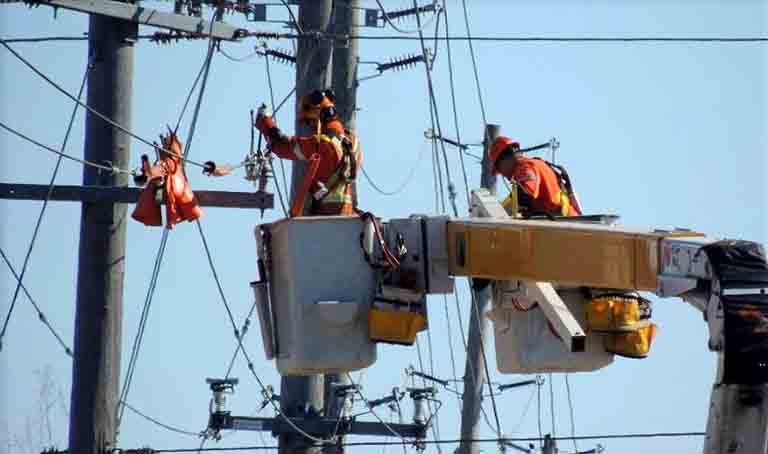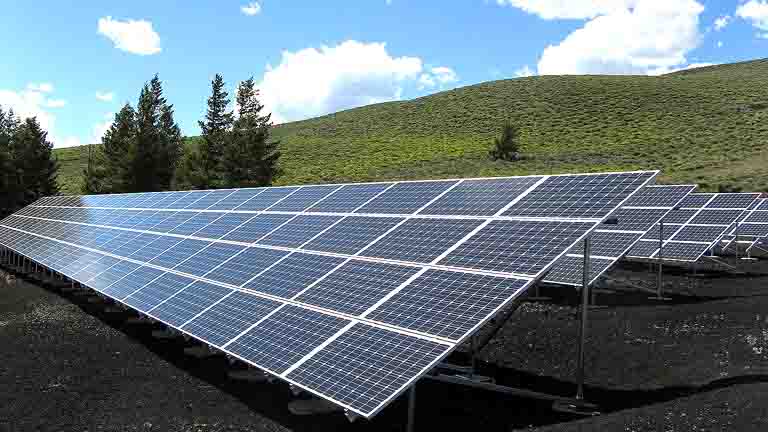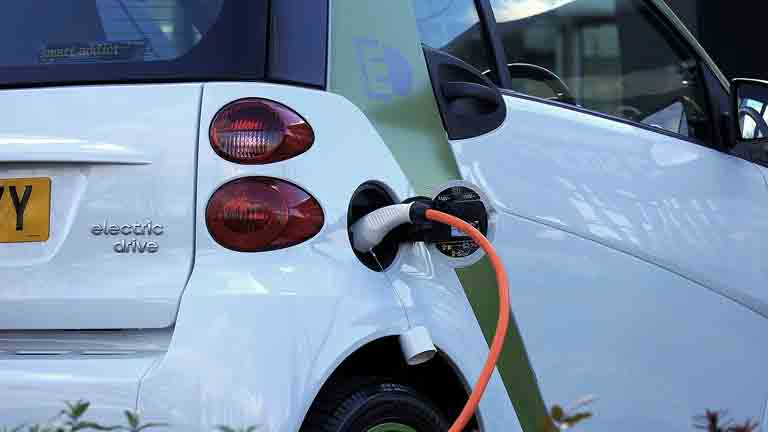Your Orillia Tomorrow
By Tony Telford and Stan Mathewson – Special to SUNonline/Orillia
For most of us, two of our greatest concerns—after a full stomach, a bed, and a roof over our heads—are energy (heat and light) and transportation.
How do we keep the lights on? The house warm? How do we move from point A to point B? With all of the changes on the horizon, what will our energy and transportation future look like in just 5 or 10 years?
Historically fossil fuels have been the answer to our energy and transportation needs. But as our population increases, so do our demands. In 2019 we know increased use of fossil fuels over the past two hundred years is now creating a crisis for us on Earth. Climate change is upon us. The sooner we move away from this source of energy, the more success we will have in at least reducing the effect of increased CO2 in our atmosphere. Our lives cannot be truly sustainable until we end our use of carbon-based fuels.
So what can we do in our community that will make a difference and start the movement to change?
It can be a daunting task. To live more sustainably can cost money, be inconvenient, and require compromise. We find it easier to point to things other people should do than to make decisions about changing our own ways. But if change is truly inevitable, and every indicator says it is, should we not try to get ahead of the curve before the curve throws us off the road?

Energy
Over the past ten years, energy from the sun and the wind has become a reality, and alternative energy will continue to be. It is said many more jobs can be created in the pursuit of alternative energy than currently exist in the fossil fuel industry. We’ve also discovered that we can increase our conservation efforts and save money doing so.
But there is so much more we can do! We all can put solar on the roofs of our houses. Solar hot water heating is feasible now. There is evidence that battery technology improvement is just around the corner. Cost efficient energy storage is the missing link. We are on the brink of an era which will see solar and wind become the main sources of energy for our needs. The faster we move into that era, the faster we reduce our greenhouse gas emissions.

Imagine the vision Sustainable Orillia has, neighbourhoods in Orillia where every house has solar panels to provide electricity, heat comes from pipes embedded in the ground (geothermal), every garage has an electric vehicle charging station – and a clothesline! Bike and walking trails connect every part of the city to our downtown area. We have the technology now to make this vision a reality.
Transportation
Currently most of us own one or more vehicles and they are one of the most expensive parts of our lives. Gas, insurance, and maintenance all add up each year. Yet, we feel we these are necessary expenses. Part of the reason we can afford cars is because we do not yet pay the total economic, social and environmental costs of driving them. If we had to, we would then ask, “Do we really need them?”
And there are real questions we need to ask. Do vehicles need to be as large as they are? Do so many of us need a truck or an SUV?
Is there a better way? Orillia has a public transit system and taxis. What if we offered more ride-sharing services like Uber and Lyft? What if we could share a car with our neighbours, or call an automated vehicle whenever we need a ride?
We may be on the verge of a revolution in our relationship with our cars.

Electric vehicles are making their way into our lives, making travel pollution free. Electric buses will soon quietly travel our streets. Hi-speed electric rail systems will come to southern Ontario, revolutionizing our travel.
And there’s active transportation – walking and cycling. Orillia and area has a well established bike trail system going east and west, and north and south through town and connecting to surrounding communities. Can we expand it a little more? While it may be a seasonal answer only, there are significant health and social benefits to our making better use of these alternatives to our cars.
Prognosis
There are changes we can make through our own choices. But some will simply happen. These will be disruptive, creating major changes in the way we do things. Think automated trucks; no more truck drivers! And fewer customers for motels, truck stop restaurants, and fuel stations. The adoption of electric vehicles will mean many automotive jobs simply disappear. Not only are electric vehicles far more energy efficient than internal combustion engines, they also have more than ten times fewer moving parts. The result? Repairs and maintenance are significantly less and durability is greater—and that means your local garage will become endangered.
Another example of change? In just nine years Uber moved from being a startup company to providing more rides than all the taxis combined.
Our future is almost now. It will be different partly because of actions we take and partly because of technologies and economies that thrust change upon us.

The good news is that many of these changes will reduce our dependence on fossil fuels and that will be good for the planet and every living thing on it.
Change is not always easy. But we would be foolish not to embrace change, especially when there are real and profound advantages in doing so.
Science and research is moving forward – and will without us. Fortunately, most people are on board with technology being improved and invented each day. The missing piece is regulatory change allowing new technologies to flourish. Instead we continue to see protections for old technology. Our political leaders must be persuaded to embrace change as well.
Organized voices can show the way. Join Sustainable Orillia’s initiative for change. Please visit our website.
(Photos by Pixabay)

Editor’s Note: This is the 10th in a series of articles by members of the Sustainable Orillia mayor’s task force introducing the sector divisions of the community strategy. The initiative is designed to provide local, attainable, solutions for the effects, economic and quality of life, of climate change.
Support Independent Journalism
Also see – The Mayor’s Task Force: Sustainable Orillia
Climate Change: A Learning Opportunity
Sustainable Orillia: The Agricultural Sector
Sustainable Orillia: The Arts And Culture Sector

